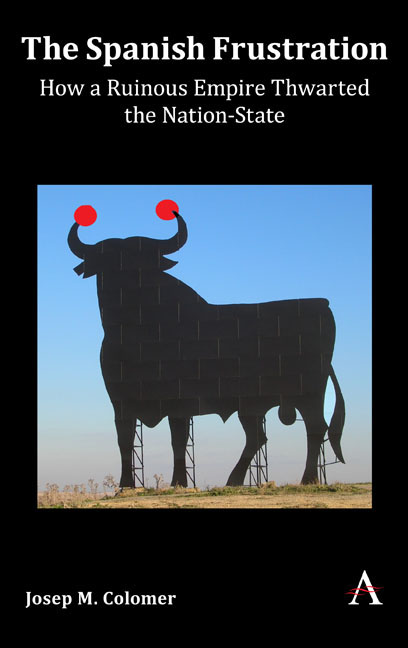4 - A Minority Democracy
Published online by Cambridge University Press: 11 July 2019
Summary
Oligarchy and Clientelism
Party-cracy
Minority Governments
Competitive Autonomies
The Catalan Roller Coaster
The Basque Pendulum
A Blocked Constitution
There are different levels of quality of democracy. The current democracies in Canada or Sweden, for example, are of higher quality in terms of civil rights, rule of law, citizens’ participation and government effectiveness than those in, say, Paraguay or Romania. Likewise, there are also different levels of atrocity of dictatorships, as we can see if we compare, for example, totalitarian North Korea or Saudi Arabia with the softer regimes of Malaysia or Morocco. There are democracies and democracies, as there are dictatorships and dictatorships. From this perspective, the current political regime in Spain is a democracy but not of very high quality— rather low in some important respects.
Spain is not exceptional regarding the disappointment of democratic promises. All democracies based on elections by political parties in large states have limitations and produce frustrations. In general, the establishment of the modern model of representative democracy implied some loss in comparison with the classical model of direct democracy in small city-republics. But precisely, how different democratic regimes deal with the shortcomings of the modern representative formula is what gives them different levels of quality.
Let us briefly recall some basic concepts to clarify this. In direct democracies— such as ancient Athens, Renaissance Florence or the current Swiss communes, for example— the people, first, vote on policy in open assemblies and second, they select delegates to implement their decisions. The delegates are not representatives of the people but only mandataries to execute the assembly's imperative instructions. They render account of their job and could be sanctioned for their performance.
In contrast, in modern democratic states the people do not make binding decisions. The voters, first, elect representatives without any imperative mandate on public policy and, second, the elected representatives choose policy with vast discretional latitude and without legally binding pledges or electoral promises. The representatives make decisions on behalf of the people. They are not revocable and cannot be recalled on the basis of their policy performance. The only mechanism for accountability of the elected representatives is the following election, which has to deal with both past performances and new future promises at the same time.
- Type
- Chapter
- Information
- The Spanish FrustrationHow a Ruinous Empire Thwarted the Nation-State, pp. 111 - 162Publisher: Anthem PressPrint publication year: 2019



